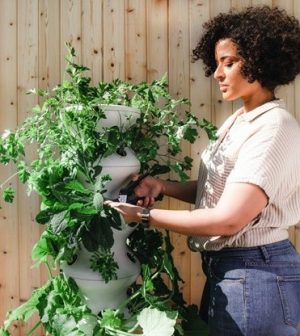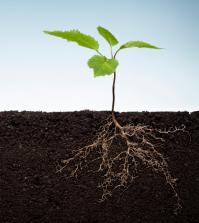- Mothering in a Fractured TimePosted 4 days ago
- Beneath the Surface: Revealing Life’s Goals nurtured from a Spiritual SeedPosted 7 days ago
- How We Kept Marital Peace while Traveling the World with Our KidsPosted 2 weeks ago
- How I Coped with Feeling Lost in a Changing SocietyPosted 3 weeks ago
- The Unexpected Liberation of a Butt DialPosted 2 months ago
- Why is France making abortion a constitutional right?Posted 2 months ago
Gardening as Exercise + How it Benefits Our Mind and Body

By Corey Doane
When it comes to a good workout, gardening probably isn’t the first thing to come to mind. But did you know that you can burn just as many calories doing gardening and yard work as you would in the gym? So is gardening considered exercise? It sure is. The American Heart Association classifies gardening as a moderate-intensity aerobic activity.
In fact, according to the CDC, 30 minutes of light gardening or yard work can burn 165 calories, while one hour can burn around 330. That’s almost the same amount (if not more) than hiking, dancing, biking, walking and weight lifting.
While gardening can greatly benefit our physical health, it does wonders for our mental health, too. Here are just a few of the many benefits gardening can have in your life.
It can help improve your diet.
When you’re able to grow your own food, you naturally eat better because it’s easily available. Fruits and vegetables that are grown at home and have the time to ripen in the garden also contain a lot more nutrients than those that are bought in store and picked too early. On top of that, growing your own produce gives you control over how many pesticides touch your food—something you don’t always have the luxury of when buying from the grocery store.
If you’re new to gardening, try growing fruits and vegetables that are easy to grow—such as strawberries, lettuce, tomatoes and carrots. If you’re not into growing your own food, you can still reap the health benefits of a balanced diet by shopping at your local farmer’s market or joining a community garden.
It can improve your mental health.
Gardening has been used as a form of therapy as it helps decrease feelings of stress, anxiety and depression. Vitamin D from the sun is great for improving our mood, as it helps increase the level of serotonin in our brains—aka our happy hormone. A study published by the Journal of Health Psychology found that 30 minutes of gardening decreased stress more than reading a book indoors.
It helps maintain a healthy weight.
As mentioned, growing your own food can help encourage healthy eating which can help maintain a healthy weight, but the physical act of gardening can also make you break a sweat. Gardening activities like raking, harvesting, digging and weeding all target a variety of muscles and is great for keeping you physically fit. Here are a few tips for staying fit in the garden:
- Incorporate bodyweight exercises into your garden activities, like doing a squat while carrying a bag of soil or pushups in between weeding
- Increase your range of motion during activities to build up your strength and stamina
- Engage your large muscles like your legs to burn as many calories as possible
- Stretch prior to gardening and wear proper workout clothes and shoes to avoid injury
- Complete your gardening tasks in sets or reps the same way you would in the gym
Getting outside in your garden can improve your physical and mental health in so many ways. For more health benefits as well as tips for digging your way to a healthier life, check out the infographic guide here.
Feature Slider Image by Lettuce Grow on Unsplash
********
 Corey Doane is a digital content creator who helps adidas create helpful and compelling stories worth sharing. Her background in digital marketing and creative writing has led her to cover unique topics ranging from business to eco to lifestyle.
Corey Doane is a digital content creator who helps adidas create helpful and compelling stories worth sharing. Her background in digital marketing and creative writing has led her to cover unique topics ranging from business to eco to lifestyle.
LinkedIn: https://www.linkedin.com/in/corey-doane







